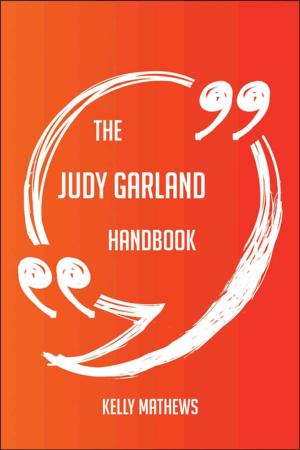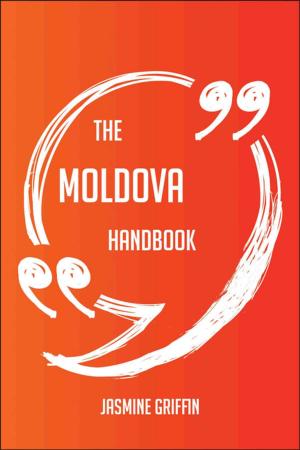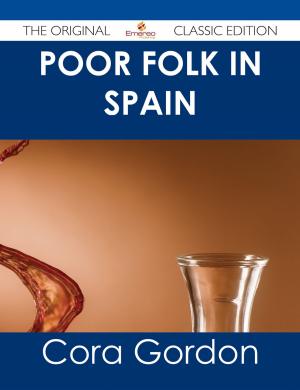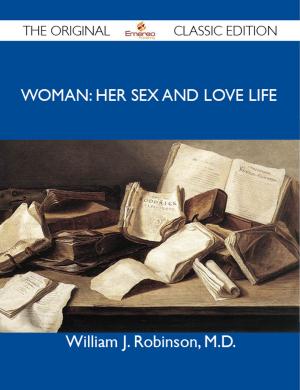The Golden Bough (Third Edition, Vol. 3 of 12) - The Original Classic Edition
Nonfiction, Reference & Language, Reference, Fiction & Literature| Author: | James George Frazer | ISBN: | 9781486493760 |
| Publisher: | Emereo Publishing | Publication: | March 11, 2013 |
| Imprint: | Emereo Publishing | Language: | English |
| Author: | James George Frazer |
| ISBN: | 9781486493760 |
| Publisher: | Emereo Publishing |
| Publication: | March 11, 2013 |
| Imprint: | Emereo Publishing |
| Language: | English |
This is a new and freshly published edition of this culturally important work by James George Frazer, which is now, at last, again available to you.
Get the PDF and EPUB NOW as well. Included in your purchase you have The Golden Bough (Third Edition, Vol. 3 of 12) in EPUB AND PDF format to read on any tablet, eReader, desktop, laptop or smartphone simultaneous - Get it NOW.
Enjoy this classic work today. These selected paragraphs distill the contents and give you a quick look inside The Golden Bough (Third Edition, Vol. 3 of 12):
Look inside the book:
At a certain stage of early society the king or priest is often thought to be endowed with supernatural powers or to be an incarnation of a deity, and consistently with this belief the course of nature is supposed to be more or less under his control, and he is held responsible for bad weather, failure of the crops, and similar calamities.1 To some extent it appears to be assumed that the king's power over nature, like that over his subjects and slaves, is exerted through definite acts of will; and therefore if drought, famine, pestilence, or storms arise, the people attribute the misfortune to the negligence or guilt of their king, and punish him accordingly with stripes and bonds, or, if he remains obdurate, with deposition and death.2 Sometimes, however, the course of nature, while regarded as dependent on the king, is supposed to be partly independent of his will. ...Of the taboos imposed on priests we may see a striking example in the rules of life prescribed for the Flamen Dialis at Rome, who has been interpreted as a living image of Jupiter, or a human embodiment of the sky-spirit.39 They were such as the following:—The Flamen Dialis might not ride or even touch a horse, nor see an army under arms,40 nor wear a ring which was not broken, nor have a knot on any part of his garments; no fire except a sacred fire might be taken out of his house; he might not touch wheaten flour or leavened bread; he might not touch or even name a goat, a dog,41 raw meat, pg 014 beans,42 and ivy; he might not walk under a vine; the feet of his bed had to be daubed with mud; his hair could be cut only by a free man and with a bronze knife, and his hair and nails when cut had to be buried under a lucky tree; he might not touch a dead body nor enter a place where one was burned;43 he might not see work being done on holy days; he might not be uncovered in the open air; if a man in bonds were taken into his house, the captive had to be unbound and the cords had to be drawn up through a hole in the roof and so let down into the street.
About James George Frazer, the Author:
When the worm arrived and said that they should dig up the corpse, place it in a tree, and throw mush at it, they were too lazy to do this, and so death remained on Earth. ...^ 'For those who see Frazer's work as the start of anthropological study in its modern sense, the site and the cult of Nemi must hold a particular place: This colourful but minor backwater of Roman religion marks the source of the discipline of Social Anthropology', remarks Mary Beard, in noting the critical reassessment of Frazer's work following Edmund Leach, 'Frazer, Leach, and Virgil: The Popularity (and Unpopularity) of the Golden Bough,' Comparative Studies in Society and History, 34.2 (April 1992:203-224), p.
This is a new and freshly published edition of this culturally important work by James George Frazer, which is now, at last, again available to you.
Get the PDF and EPUB NOW as well. Included in your purchase you have The Golden Bough (Third Edition, Vol. 3 of 12) in EPUB AND PDF format to read on any tablet, eReader, desktop, laptop or smartphone simultaneous - Get it NOW.
Enjoy this classic work today. These selected paragraphs distill the contents and give you a quick look inside The Golden Bough (Third Edition, Vol. 3 of 12):
Look inside the book:
At a certain stage of early society the king or priest is often thought to be endowed with supernatural powers or to be an incarnation of a deity, and consistently with this belief the course of nature is supposed to be more or less under his control, and he is held responsible for bad weather, failure of the crops, and similar calamities.1 To some extent it appears to be assumed that the king's power over nature, like that over his subjects and slaves, is exerted through definite acts of will; and therefore if drought, famine, pestilence, or storms arise, the people attribute the misfortune to the negligence or guilt of their king, and punish him accordingly with stripes and bonds, or, if he remains obdurate, with deposition and death.2 Sometimes, however, the course of nature, while regarded as dependent on the king, is supposed to be partly independent of his will. ...Of the taboos imposed on priests we may see a striking example in the rules of life prescribed for the Flamen Dialis at Rome, who has been interpreted as a living image of Jupiter, or a human embodiment of the sky-spirit.39 They were such as the following:—The Flamen Dialis might not ride or even touch a horse, nor see an army under arms,40 nor wear a ring which was not broken, nor have a knot on any part of his garments; no fire except a sacred fire might be taken out of his house; he might not touch wheaten flour or leavened bread; he might not touch or even name a goat, a dog,41 raw meat, pg 014 beans,42 and ivy; he might not walk under a vine; the feet of his bed had to be daubed with mud; his hair could be cut only by a free man and with a bronze knife, and his hair and nails when cut had to be buried under a lucky tree; he might not touch a dead body nor enter a place where one was burned;43 he might not see work being done on holy days; he might not be uncovered in the open air; if a man in bonds were taken into his house, the captive had to be unbound and the cords had to be drawn up through a hole in the roof and so let down into the street.
About James George Frazer, the Author:
When the worm arrived and said that they should dig up the corpse, place it in a tree, and throw mush at it, they were too lazy to do this, and so death remained on Earth. ...^ 'For those who see Frazer's work as the start of anthropological study in its modern sense, the site and the cult of Nemi must hold a particular place: This colourful but minor backwater of Roman religion marks the source of the discipline of Social Anthropology', remarks Mary Beard, in noting the critical reassessment of Frazer's work following Edmund Leach, 'Frazer, Leach, and Virgil: The Popularity (and Unpopularity) of the Golden Bough,' Comparative Studies in Society and History, 34.2 (April 1992:203-224), p.















